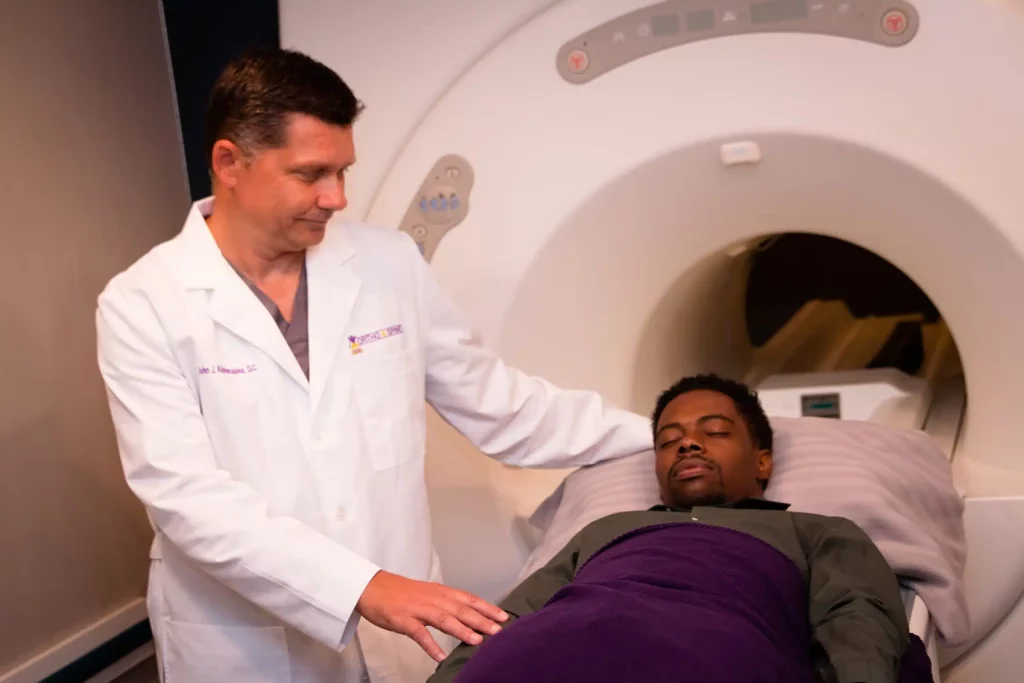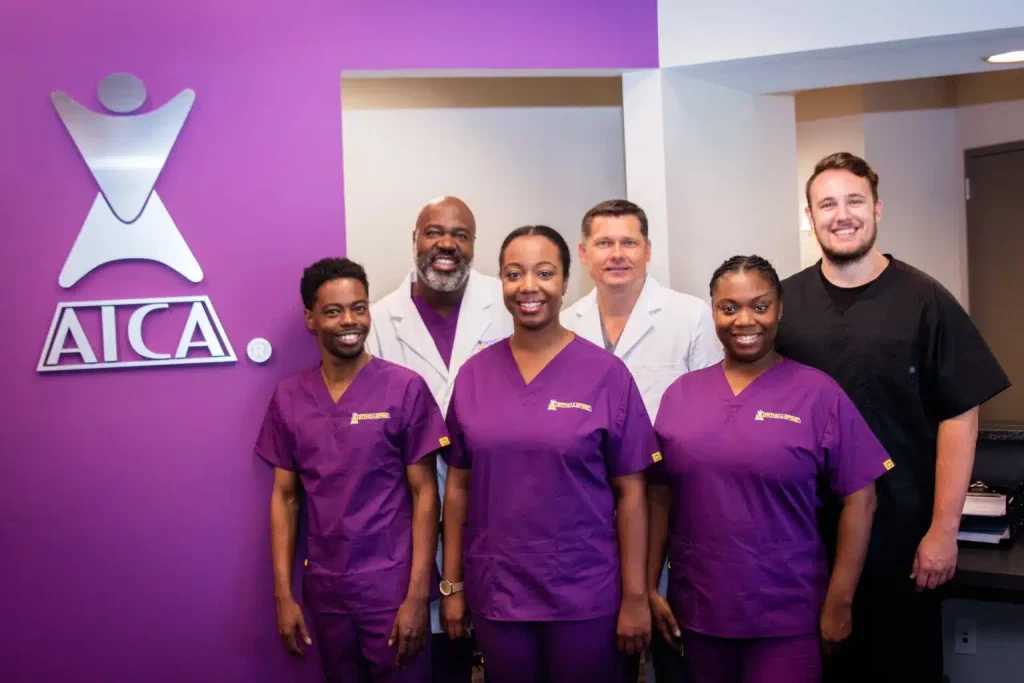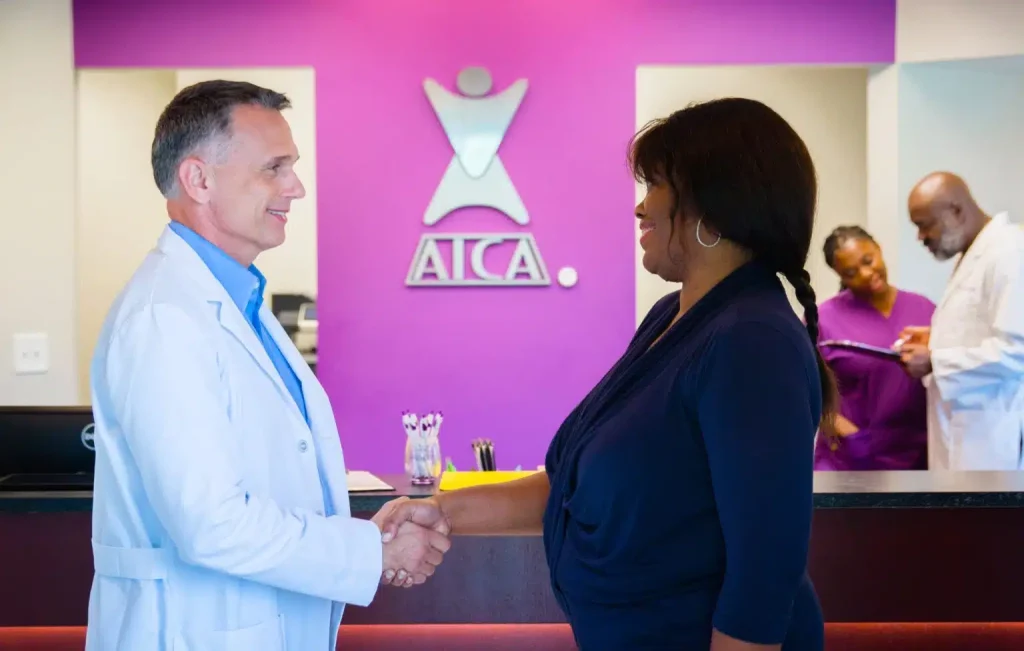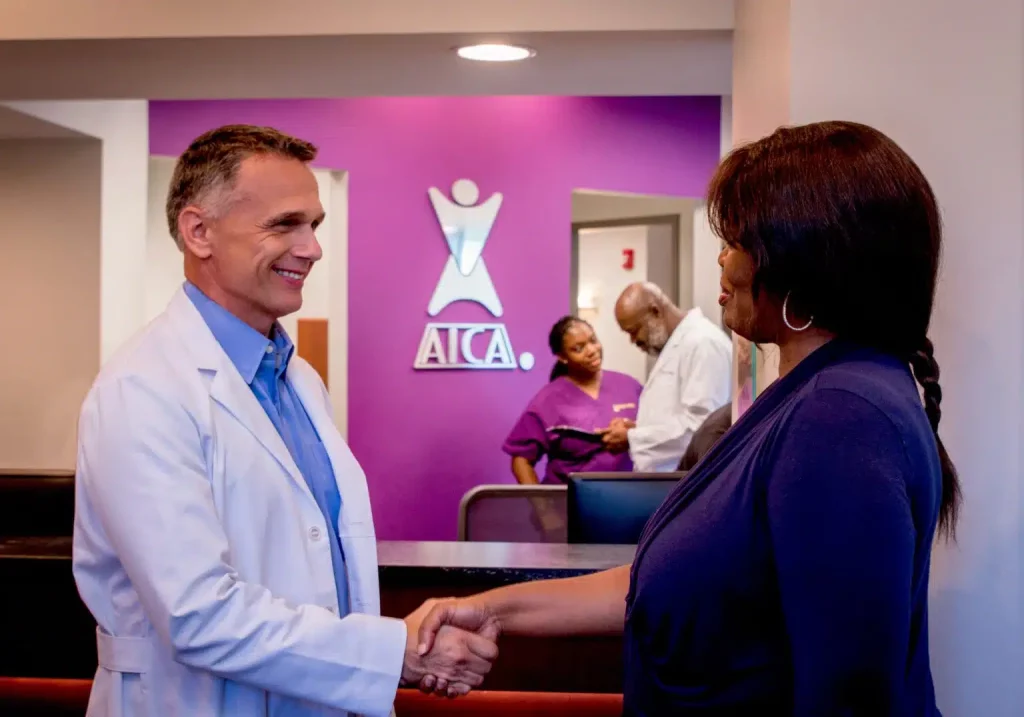A Comprehensive Guide to Managing Medical Expenses After a Car Accident
Key Takeaways from the Article:
- Types of Medical Bills: After a car accident, you can expect various medical bills, including hospital bills, ambulance services, primary care physician bills, specialist consultations, imaging and diagnostic tests, rehabilitation services, prescription medications, follow-up visits, assistive devices, and home health care.
- Responsibility for Payment: The responsibility for paying these medical bills depends on fault. If you’re not at fault, the at-fault driver’s car insurance generally covers your expenses. If you’re at fault, your health insurance typically covers the costs.
- Filing an Injury Claim: Filing an injury claim is essential to ensure your medical bills are paid. It provides financial protection, fair compensation, and access to necessary medical care. Consulting a personal injury attorney can be helpful in complex cases.
- Billing and Payment Options: Medical bills can be handled through various methods, including billing the at-fault insurance company, placing a medical lien, billing health insurance, or waiting for settlement clearance. Discuss these options with your healthcare provider to understand the process.
- Third-Party Liability: Third-party liability is a crucial concept, as it ensures the responsible party’s insurance covers your costs. However, some healthcare providers may not accept this type of insurance due to its complexity.
- Impact on Settlement: The number and amount of medical bills can influence the settlement amount. Be aware of liability limits and ensure that your attorney is informed about all your medical treatments to negotiate fair compensation.
- Average Medical Bills: The average medical balance can vary based on the extent of treatment required. It can range from a few thousand dollars to more, depending on the injuries and services provided.
- Billing by AICA Orthopedics: AICA Orthopedics offers multiple billing options, including billing the at-fault insurance company, placing a medical lien, billing health insurance, or waiting for settlement clearance. Discuss the billing process with them to understand your responsibilities during treatment and settlement.Remember that the specifics of handling medical bills after a car accident can vary based on individual circumstances, insurance policies, and state laws. It’s crucial to seek legal and healthcare advice to ensure your rights are protected and your medical expenses are appropriately managed.
10 Types of Medical Bills Resulting from a Car Accident
After a car accident, you might find yourself needing medical attention for various injuries. The medical bills that can pile up can cover a range of services provided by different healthcare professionals and facilities. Here are some common types of medical bills you might encounter:
- Hospital Bills: If your injuries are severe, you might need to be taken to a hospital for immediate medical care. Hospital bills can include charges for emergency room services, surgery, medical tests, medications, and the cost of staying in the hospital.
- Ambulance Services: If you require emergency transportation to the hospital, the ambulance ride itself can come with a bill. This includes the specialized medical care and equipment provided by paramedics during transport.
- Primary Care Physician Bills: After the initial emergency care, you might need to follow up with your primary care physician or family doctor. They will assess your condition, provide necessary treatments, and monitor your recovery progress.
- Specialist Consultations: Depending on the nature of your injuries, you might need to see specialists such as orthopedic surgeons, neurologists, physical therapists, and more. In most cases, each specialist visit comes with its own set of charges. There are a few providers in the US who specialize in treating car accident injury victims and actually offer all of these services under one roof. AICAis the only multi-specialty clinic in Atlanta that specializes in car accident care.
- Imaging and Diagnostic Tests: To properly diagnose your injuries, medical professionals might need to perform various tests, such as X-rays, CT scans, MRI scans, and blood tests. These tests help determine the extent of your injuries and guide your treatment.
- Rehabilitation Services: Recovering from car accident injuries might involve rehabilitation services like physical therapy, occupational therapy, and chiropractic care. These services are designed to help you regain your strength, mobility, and overall well-being.
- Prescription Medications: If you’re prescribed medications to manage pain, treat infections, or aid in your recovery, the cost of these medications can add up over time.
- Follow-Up Visits: Depending on the severity of your injuries, you might need multiple follow-up visits to monitor your progress and adjust your treatment plan as needed.
- Assistive Devices: In some cases, car accident injuries might require you to use assistive devices such as crutches, braces, or wheelchairs. The costs of obtaining and maintaining these devices can contribute to your medical expenses.
- Home Health Care: For serious injuries, you might need assistance at home with activities of daily living. Home health care services, including nursing care and personal care aides, can generate additional bills.

It’s important to keep track of all these different types of medical bills and associated expenses to have a comprehensive understanding of the financial impact of the accident. These costs can vary widely depending on the severity of your injuries and the treatments you require.
Citas el mismo día
Programa tu cita hoy.
¡Empieza tu recuperación!
Who Pays for Each These Medical Bills?
Dealing with these medical bills after a car accident can be overwhelming. But don’t worry, we’re here to lend a helping hand! Below, we’ve put together an overview to demystify the who-pays-what conundrum when it comes to medical expenses following an accident. Let’s dive in and clear the fog of confusion!
As a quick overview, here’s how it generally works: If you’re not at fault for the accident, the other person’s insurance typically pays for your medical expenses. However, if you’re the one responsible for the accident, your health insurance usually covers all the costs. For the nitty-gritty details, continue reading.
- Who Pays the Hospital Bills: These are usually paid by the at-fault driver’s car insurance or your health insurance, depending on who is responsible for the accident. If you’re at fault and you don’t have health insurance, you might have to pay these bills yourself, but you can try to get reimbursed later.
- Who Pays for Ambulance Services: Similar to hospital bills, these are typically covered by health insurance, either yours or the at-fault driver’s car insurance. If you don’t have health insurance, you may still be able to get these costs covered by the responsible party’s car insurance.
- Primary Care Physician Bills: These are usually covered by your health insurance. If the accident was someone else’s fault, their car insurance will likely be responsible for these bills. You’ll often find that your primary care provider won’t see you after a car accident. This is because of something called “third party liability” that we’ll cover later in this article.
- Specialist Consultations: Like primary care physician bills, these are often covered by health insurance. If the accident was someone else’s fault, their car insurance will likely cover these costs as well.
- Imaging and Diagnostic Tests: If you were not at fault for the accident, the at-fault party’s car insurance should be responsible. If you were at-fault, your health insurance generally covers these tests.
- Rehabilitation Services: Health insurance may cover some of these costs. If the accident was someone else’s fault, you can seek reimbursement from their car insurance.
- Prescription Medications: Health insurance typically covers a portion of prescription costs. If the accident wasn’t your fault, you can usually get these expenses covered by the at-fault driver’s car insurance.
- Follow-Up Visits: Health insurance often covers follow-up appointments. If the accident was the fault of another driver, their car insurance will likely be responsible.
- Assistive Devices: Health insurance may cover some of the costs, and if the accident was someone else’s fault, you can seek reimbursement from their car insurance.
- Home Health Care: Health insurance may cover some home health care costs. If the accident wasn’t your fault, you can try to get these expenses covered by the at-fault driver’s car insurance.
Keep in mind that insurance policies and regulations can vary, so it’s essential to understand your specific situation and policies. Additionally, if you were at fault for the accident, your own car insurance may cover some of these expenses under certain circumstances, depending on your policy’s terms and state laws.
Four Different Sources to Pay for Your Accident Medical Bills
The responsibility for paying medical bills resulting from a car accident injury can vary depending on whether the injured individual is deemed at fault or not at fault in the accident. Georgia is an at-fault state, and who is at fault for a car accident is determined based on specific rules. For example, in rear-end accidents, the driver who rear-ended the other vehicle is generally considered at fault because they are assumed to have been following too closely. It’s important to note that there can be exceptions to these rules. Regardless of fault, it is necessary to file a police report and inform your insurance company about the accident. The insurance adjuster will investigate the case and assess the facts to determine fault. The state of Georgia also requires drivers to carry liability insurance, which covers accidents that they may be liable or at-fault for, such as an accident that results in injuries to another.
What is Third Party Liability?
Third party liability is like a safety net in the world of car accidents. When you’re involved in a crash, and it’s not your fault, the “third party” is usually the person who caused the accident – the responsible party. Now, here’s the cool part: their car insurance is responsible for helping pay for the damage and expenses caused by the accident.
Think of it this way: your car insurance is the first party (that’s you), and the other driver is the second party. The third party is their insurance company, and they step in to make things right, so you don’t have to bear all the financial burdens on your own.
So, in simple terms, third party liability means that the person who caused the accident is responsible for covering your costs, like medical bills or repairs to your car. It’s a way to make sure you’re not left high and dry after an accident that wasn’t your fault.
Now, here’s a little twist in the story. While third party liability can help cover expenses, some healthcare providers, including primary care physicians (PCPs), might not accept this type of insurance. It’s not because they don’t want to help – it’s often because dealing with third party liability claims can be a bit more complicated and time-consuming for them.
PCPs usually prefer to work with regular health insurance because it’s simpler and more predictable for them. With regular health insurance, they know how things work, and they can focus on providing you with the best care.
So, if your PCP doesn’t accept third party liability, it doesn’t mean they’re turning their back on you. It might just mean they prefer to stick with what they know best. In that case, you might need to find a specialist who can help with your specific injuries and accept third party liability if that’s what you’re dealing with after a car accident.
Remember, healthcare can be a bit like a puzzle, but there are always ways to piece things together to get the care you need, even if your regular doctor isn’t part of the solution.
Should I File An Injury Claim After an Accident?
Filing an injury claim after a car accident can be crucial for covering your medical bills and other related expenses. Here’s why you should consider filing one and an overview of how to go about it:
Why File an Injury Claim?
- Financial Protection: Car accidents can lead to hefty medical bills, vehicle repair costs, and even lost wages if you can’t work due to injuries. An injury claim can provide financial protection by seeking compensation to cover these expenses.
- Fair Compensation: If the accident was caused by someone else’s negligence, it’s only fair that their insurance helps cover your costs. An injury claim ensures you are not burdened with expenses resulting from someone else’s actions.
- Access to Quality Medical Care: Filing a claim can help you access necessary medical care promptly. You can get the treatments you need to recover fully, rather than delaying or avoiding medical attention due to cost concerns.
How to File an Injury Claim:
- Report the Accident: Start by reporting the accident to your insurance company and the at-fault driver’s insurance. You’ll need details about the accident, including location, date, and contact information of the parties involved.
- Gather Evidence: Collect evidence to support your claim. This may include photos of the accident scene, damage to vehicles, and your injuries. Obtain a copy of the police report if one was filed.
- Seek Medical Attention: Visit a healthcare provider promptly to assess your injuries. It’s crucial to have a record of your injuries and treatment, which will serve as evidence for your claim.
- Consult an Attorney: Consider consulting a personal injury attorney, especially if the case is complex or you’re unsure about the legal aspects. They can provide valuable guidance and handle negotiations with insurance companies on your behalf.
- Document Expenses: Keep records of all expenses related to the accident, including medical bills, receipts, and estimates for vehicle repairs. This documentation will be essential for calculating the compensation you deserve.
- Notify the At-Fault Driver’s Insurance: Inform the at-fault driver’s insurance company of your intent to file a claim. Provide them with the necessary information and documentation.
- Negotiate a Settlement: The insurance company will typically investigate the claim and may offer a settlement. Be prepared to negotiate to ensure you receive fair compensation. Your attorney, if you have one, can assist with this process.
- Consider Legal Action: If negotiations fail to result in a fair settlement, you may need to consider legal action, such as filing a lawsuit against the at-fault driver. Your attorney can guide you through this process if necessary.
Remember, the specifics of filing an injury claim can vary depending on your location and the circumstances of the accident. Consulting with an attorney who specializes in personal injury cases is often a wise step to ensure you’re taking the right actions to secure the compensation you deserve.
Dealing with Multiple Medical Providers and Specialists
The charges for car accident injury treatment by a doctor or hospital can vary depending on the specific injuries and the type of treatment required. In general, each visit and service provided by a hospital or doctor will incur charges, and these charges are typically determined by the fee schedule set by the medical center. As you attend more visits or services for car accident injury treatment, the balance you owe will accumulate accordingly. In addition to filing an injury claim after a car accident, there are also other options for cost coverage.
Negotiating Medical Bills with Providers
When it comes to addressing medical bills for a car accident injury, it is important to reach out to the appropriate entities. If you have received medical treatment or services from a hospital, healthcare facility, or doctor’s office, they should be your primary point of contact for any inquiries regarding your medical bills. They have access to your medical records and billing information, and they can provide detailed explanations or assistance regarding the charges and payment process. Contacting them directly allows you to address any questions, concerns, or discrepancies related to your medical bills.
Many individuals choose to engage the services of an attorney following a car accident, especially if the circumstances are complex or involve disputes about fault or compensation. If you have retained an attorney to handle your case, they become a key contact person for addressing medical bills. They can guide you through the legal process, communicate with relevant parties on your behalf, and provide advice regarding the medical expenses associated with your accident. Your attorney can also assist in negotiating with insurance companies and ensuring that you receive fair compensation for your injuries.
Reimbursement for Medical Bills After a Car Accident
When dealing with third-party insurance claims in situations where another driver is at fault and responsible for your injuries, the concept of “pain and suffering” is factored into the settlement process. The insurance company acknowledges that you have endured physical pain, discomfort, and inconvenience by having to attend medical appointments, and they consider this when determining the settlement amount. Once the settlement offer is provided, you or your attorney, if you have one, can engage in discussions with the insurance adjuster to negotiate and determine an appropriate compensation amount for your pain and suffering.
How Medical Bills Can Affect a Settlement
Additionally, the number of medical bills can also influence whether the liability limits of the at-fault driver’s insurance policy are exhausted. For example, if you have a hospital bill of $15,000 and an AICA Orthopedics balance of $9,000, your total medical bills amount to $24,000. However, if the liable driver’s insurance policy has a limit of $25,000, only $1,000 would be available for compensation for your pain and suffering. Moreover, if you have legal representation, a portion of the settlement will be allocated to your attorney for their services.
This underscores the importance of being mindful of the liability limits and the amount of your medical bills throughout your treatment process. If you have retained an attorney, it is crucial to ensure that they are informed about all your medical treatments. This way, they can ensure that all medical bills are paid appropriately and that sufficient funds are allocated to cover their services as well as compensate you for your pain and suffering.
Average Car Accident Medical Bills in Georgia
The average medical balance can vary and is subject to change. In cases where a person visits the doctor for a few appointments to ensure their well-being, a typical balance might amount to approximately $2,000. However, for treatments that require a more extensive course of action, the balance will inevitably vary. The specific medical balance will depend on the duration of treatment and the specific services provided. For instance, if an MRI is recommended, it can increase the medical balance by around $2,500.
How Does AICA Charge for Car Accident Medical Care?
Most accident injury clinics typically offers a few different options for charging for care after an accident. Here’s a breakdown of how it works:
- Billing the At-Fault Insurance Company:
Not at Fault: If you’re not at fault for the accident, AICA Orthopedics will not charge you out of pocket during your visit. Instead, they’ll provide you with the necessary treatment and send the bill directly to the at-fault driver’s insurance company. This means you don’t have to worry about immediate payment, and the responsible party’s insurance company will cover your medical expenses. - Placing a Medical Lien:
Lien Agreement: In some cases, AICA Orthopedics may choose to place a medical lien on your case. This means they agree to provide you with treatment, and in exchange, they have a legal claim to a portion of your settlement or compensation once it’s awarded. This way, they get paid directly from your settlement when it clears, ensuring they are compensated for their services. - Billing Health Insurance:
Health Insurance Coverage: If you have health insurance, AICA Orthopedics may bill your health insurance provider for the services you receive. Your health insurance will cover the expenses based on your policy’s terms. However, it’s essential to be aware that you may still be responsible for co-pays, deductibles, or other out-of-pocket costs, depending on your health insurance plan. - Waiting for Settlement Clearance:
Timing of Payment: Regardless of the billing method, whether it’s directly to the at-fault insurance company, through a medical lien, or via health insurance, AICA Orthopedics typically waits for your settlement to clear. Once your settlement is finalized, they will receive payment for the medical expenses they incurred while treating you.
It’s important to discuss the billing process and payment options with AICA Orthopedics to ensure you understand how they handle charges and what your responsibilities may be, if any, during the treatment and settlement process. Additionally, working closely with your attorney, if you have one, can help ensure that your medical expenses are handled correctly and fairly in your injury claim.
Average Car Accident Medical Bills in Georgia
The average medical balance can vary and is subject to change. In cases where a person visits the doctor for a few appointments to ensure their well-being, a typical balance might amount to approximately $2,000. However, for treatments that require a more extensive course of action, the balance will inevitably vary. The specific medical balance will depend on the duration of treatment and the specific services provided. For instance, if an MRI is recommended, it can increase the medical balance by around $2,500.
How Does AICA Charge for Car Accident Medical Care?
Most accident injury clinics typically offers a few different options for charging for care after an accident. Here’s a breakdown of how it works:
- Billing the At-Fault Insurance Company:
Not at Fault: If you’re not at fault for the accident, AICA Orthopedics will not charge you out of pocket during your visit. Instead, they’ll provide you with the necessary treatment and send the bill directly to the at-fault driver’s insurance company. This means you don’t have to worry about immediate payment, and the responsible party’s insurance company will cover your medical expenses. - Placing a Medical Lien:
Lien Agreement: In some cases, AICA Orthopedics may choose to place a medical lien on your case. This means they agree to provide you with treatment, and in exchange, they have a legal claim to a portion of your settlement or compensation once it’s awarded. This way, they get paid directly from your settlement when it clears, ensuring they are compensated for their services. - Billing Health Insurance:
Health Insurance Coverage: If you have health insurance, AICA Orthopedics may bill your health insurance provider for the services you receive. Your health insurance will cover the expenses based on your policy’s terms. However, it’s essential to be aware that you may still be responsible for co-pays, deductibles, or other out-of-pocket costs, depending on your health insurance plan. - Waiting for Settlement Clearance:
Timing of Payment: Regardless of the billing method, whether it’s directly to the at-fault insurance company, through a medical lien, or via health insurance, AICA Orthopedics typically waits for your settlement to clear. Once your settlement is finalized, they will receive payment for the medical expenses they incurred while treating you.
It’s important to discuss the billing process and payment options with AICA Orthopedics to ensure you understand how they handle charges and what your responsibilities may be, if any, during the treatment and settlement process. Additionally, working closely with your attorney, if you have one, can help ensure that your medical expenses are handled correctly and fairly in your injury claim.










